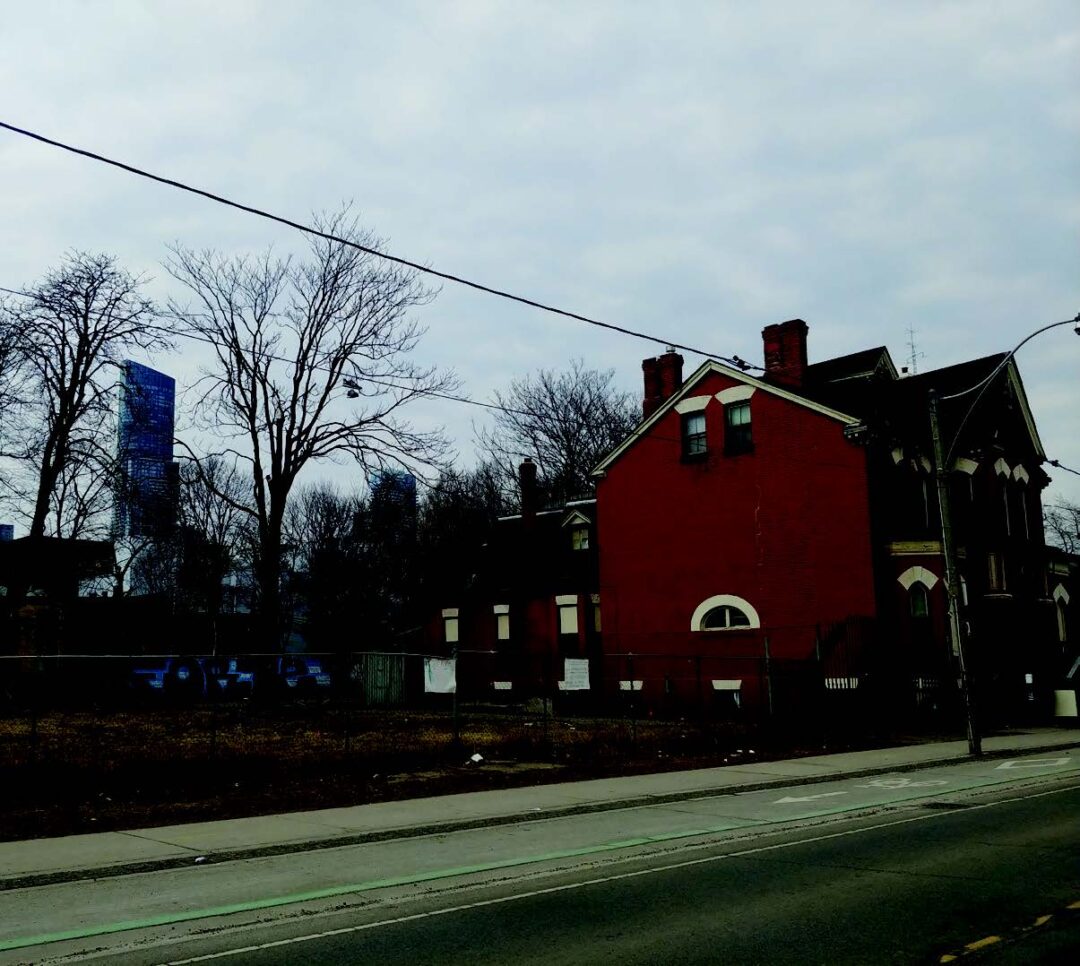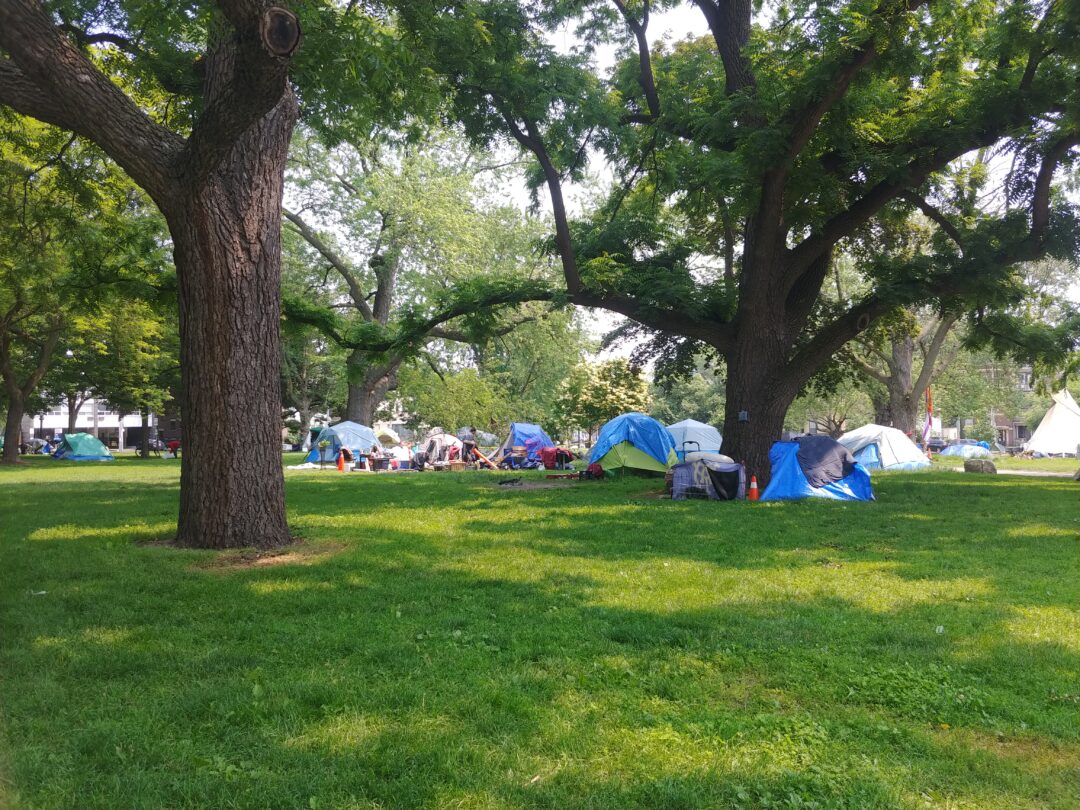By Elspeth Chalmers –
A group of local developers are appealing an amendment to the City of Toronto’s Official Plan that redefined affordable rental and owned housing. City Council adopted amendment 558 on November 9, 2021, and the developers appealed to the Ontario Land Tribunal five weeks later.
The amendment redefined affordable housing as total monthly shelter cost — including utilities as well as rent — that is the lesser of the average Toronto rent for a unit of that size or 30% of renters’ gross monthly income. The same rules apply to affordable ownership units, with total shelter costs based on “a 25-year amortization, 10% down payment and the mortgage rate for a conventional 5-year mortgage” plus a mortgage insurance premium and property taxes.
The changes would apply to new development projects filed with the city after November 9, 2021. The Ontario Land Tribunal, appointed by the provincial government to rule on land use and planning disputes, will decide on the appeal in July 2023.
In a letter to council just before the amendment passed, the developers – including Double Z Investments Ltd., Minto (Mimico) Inc., and Greenwin Holdings Inc., – “acknowledge and support the important objective of protecting existing affordable housing.” But they suggested that a lack of financial incentives to provide affordable housing will ultimately increase the cost of housing for the rest of the population.
Developers suggested that rental fees and sales prices of standard units will need to increase in buildings with affordable housing units. This claim has been disproven by city reports. Though it appears that developers will need to part with a small amount of their profits to provide affordable housing, their concerns about costs only reflect their unwillingness to forego their profits to keep housing costs down.
Minto Apartments REIT, a Minto subsidiary that owns rental properties in five Canadian cities, reported a net income of $21.8 million in the second quarter of 2022, an increase of 14.8% over the same period in 2021.
The same concerns were raised by developers when City Council unanimously passed the inclusionary zoning amendment t o t he Official Plan in September 2021. Financial assessments the city undertook in 2019, 2020 and 2021 determined where inclusionary zoning can be implemented without curbing overall
development activity. To combat “misconceptions that inclusionary zoning will make housing more expensive”, amendments at that time included a communications and public education plan.
The previous definition of affordable housing was based on average market rental rates. Total monthly shelter costs were to be no more than the average Toronto rent. Marva Burnett, president of ACORN (Association of Community Organizations for Reform Now) Canada, wrote to City Council that this definition resulted in “units that charge $2000/month or more,”which they said most Torontonians couldn’t afford.
The previous definition of affordable housing, applied to Toronto residents with an annual income of $32,486 to $91,611, left out low-income residents – the net annual salary of a full-time minimum wage worker is under $25,000. Current definitions are better, but still not enough for some community groups. Income targets reflect the lowest 60% of income according to the Area Median Income (AMI) and align with the provincial policy statement on who to target for affordable housing.
Ene Underwood, CEO of Habitat for Humanity GTA, wrote to council that “condo fees have a propensity to rise” and asked councillors to consider reducing property taxes in order to accommodate increasing condo fees.
ACORN, Habitat for Humanity, Neighbourhood Pods TO and other community groups were granted non-appellant status at a case management hearing on September 13, allowing them to participate in the proceedings. The case management conference was a chance for the tribunal to identify and understand what issues were in dispute before trial.
At the November 9, 2021, meeting, City Solicitor Amanda Hill told city council that the new income-based definitions of affordable housing are intended to respond to the needs of low-income residents instead of relying solely on market rents and prices. The result would be lower rents for studios and one- and three-bedroom units, as well as lower revenues in buildings with these types of affordable rental units, she said.
According to the city, current average market monthly rents of studio, one- and three-bedroom units in Toronto are $1225, $1446 and $1961 respectively. The new affordable rent definition would cut these rates to as low as $812, $1090 and $1858 depending on household income. Two-bedroom apartments would remain at the market average of $1661, as it is lower than the 30% fee for the income level targeted for units of that size.
The new definition also aligns with the Canada Mortgage and Housing Corp. (CMHC) affordability threshold (paying no more than 30% of a household’s gross income) and a provincial policy statement defining affordable housing (the lesser of 30% of a household’s gross income or a rate at or below the average market rent).
Walied Khogali Ali of Neighbourhood Pods TO is also director of the Regent Park Neighbourhood Association, a community where residents disproportionately have low incomes and experience poverty.
He intends to call witnesses in subsequent hearings who will “speak to the disparity between market rents and income and the disproportionate impacts of rent burden on racialized and other equity-seeking groups.”
The Land Tribunal decision could affect all affordable housing policies across the GTA, but the city hopes the tribunal will treat these types of appeals from developers on a case by case basis. “This is a very important policy for the city and is directly tied to provincial interests,” the solicitor said, echoing language in recent legislation entrenching provincial involvement in Toronto decisions.
The next case management hearing, on Friday November 4, is open to the public. A merit hearing, with substantial arguments on the appeal, will follow on July 24, 2023.




